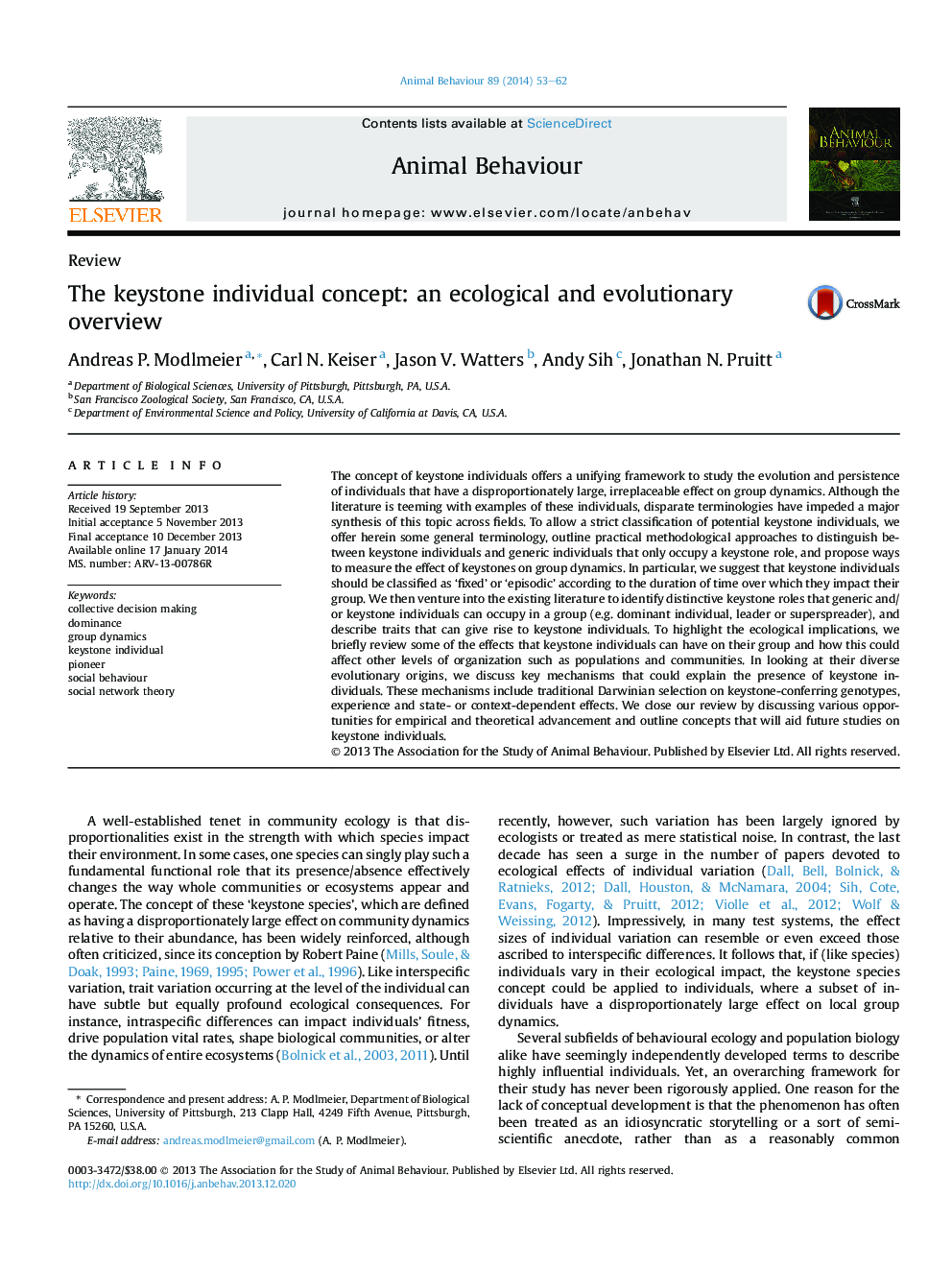| کد مقاله | کد نشریه | سال انتشار | مقاله انگلیسی | نسخه تمام متن |
|---|---|---|---|---|
| 2416441 | 1552239 | 2014 | 10 صفحه PDF | دانلود رایگان |
• We outline the concept of keystone individuals.
• Keystones are defined as having a disproportionally large effect on groups.
• Keystones can occupy a diverse array of functional roles in a group.
• We propose methodological approaches to study keystone's impacts.
• We explore keystone's evolutionary and ecological implications.
The concept of keystone individuals offers a unifying framework to study the evolution and persistence of individuals that have a disproportionately large, irreplaceable effect on group dynamics. Although the literature is teeming with examples of these individuals, disparate terminologies have impeded a major synthesis of this topic across fields. To allow a strict classification of potential keystone individuals, we offer herein some general terminology, outline practical methodological approaches to distinguish between keystone individuals and generic individuals that only occupy a keystone role, and propose ways to measure the effect of keystones on group dynamics. In particular, we suggest that keystone individuals should be classified as ‘fixed’ or ‘episodic’ according to the duration of time over which they impact their group. We then venture into the existing literature to identify distinctive keystone roles that generic and/or keystone individuals can occupy in a group (e.g. dominant individual, leader or superspreader), and describe traits that can give rise to keystone individuals. To highlight the ecological implications, we briefly review some of the effects that keystone individuals can have on their group and how this could affect other levels of organization such as populations and communities. In looking at their diverse evolutionary origins, we discuss key mechanisms that could explain the presence of keystone individuals. These mechanisms include traditional Darwinian selection on keystone-conferring genotypes, experience and state- or context-dependent effects. We close our review by discussing various opportunities for empirical and theoretical advancement and outline concepts that will aid future studies on keystone individuals.
Journal: Animal Behaviour - Volume 89, March 2014, Pages 53–62
